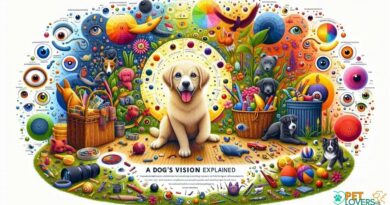What is Ontogênese
What is Ontogênese?
Ontogênese refers to the development of an individual organism from the earliest stages of life to maturity. This process encompasses various biological changes that occur from fertilization to adulthood, including cellular differentiation, growth, and morphogenesis. Understanding ontogênese is crucial in fields such as developmental biology, genetics, and evolutionary studies, as it provides insights into how organisms develop and adapt over time.
The Stages of Ontogênese
Ontogênese can be divided into several key stages: fertilization, embryonic development, and post-embryonic development. Each stage is characterized by specific biological processes. Fertilization marks the beginning of ontogênese, where the sperm and egg unite to form a zygote. This zygote undergoes rapid cell division, leading to the formation of an embryo. The subsequent stages involve complex interactions between genes and environmental factors that shape the organism’s development.
Importance of Ontogênese in Canine Development
In the context of dogs, understanding ontogênese is vital for breeders, veterinarians, and pet owners. The ontogenetic process in canines includes critical periods of growth and development, such as the neonatal phase, socialization period, and adolescence. Each of these stages plays a significant role in shaping a dog’s behavior, health, and overall well-being. Knowledge of these stages can help in providing appropriate care and training during each developmental phase.
Factors Influencing Ontogênese
Several factors influence ontogênese, including genetic, environmental, and nutritional elements. Genetic predispositions determine the potential growth patterns and health traits of an organism. Environmental factors, such as temperature, light, and social interactions, can significantly impact developmental processes. Additionally, proper nutrition during critical growth periods is essential for ensuring healthy ontogênese in dogs, as it supports optimal physical and cognitive development.
Ontogênese and Behavioral Development
Ontogênese is not limited to physical growth; it also encompasses behavioral development. In dogs, early experiences during the critical socialization period can have lasting effects on their behavior and temperament. Positive interactions with humans and other animals can lead to well-adjusted adult dogs, while negative experiences may result in fearfulness or aggression. Understanding the ontogenetic aspects of behavior can help owners and trainers foster positive traits in their pets.
Research in Ontogênese
Ongoing research in ontogênese seeks to uncover the intricate mechanisms that govern development. Studies often focus on genetic expression, cellular signaling pathways, and the role of stem cells in regeneration and repair. In the canine world, research into ontogênese can lead to advancements in veterinary medicine, including better understanding of congenital disorders and improved breeding practices aimed at enhancing the health and vitality of dog breeds.
Ontogênese in Evolutionary Biology
Ontogênese also plays a significant role in evolutionary biology, as it provides insights into how species adapt and evolve over time. The study of ontogenetic patterns can reveal evolutionary relationships between species and help scientists understand the processes that drive diversification. By examining the ontogeny of different species, researchers can trace the evolutionary history and identify key adaptations that have occurred throughout time.
Applications of Ontogênese Knowledge
The knowledge gained from studying ontogênese has practical applications in various fields, including agriculture, conservation, and animal husbandry. In agriculture, understanding the developmental stages of livestock can improve breeding and management practices. In conservation, insights into ontogênese can aid in the preservation of endangered species by informing breeding programs and habitat management strategies. For dog owners, knowledge of ontogênese can enhance pet care and training approaches.
Conclusion on Ontogênese
In summary, ontogênese is a fundamental concept that encompasses the development of organisms, including dogs. By understanding the stages, factors, and implications of ontogênese, individuals can make informed decisions regarding breeding, training, and care for their pets. This knowledge not only benefits individual animals but also contributes to the broader understanding of biological development and evolution.




